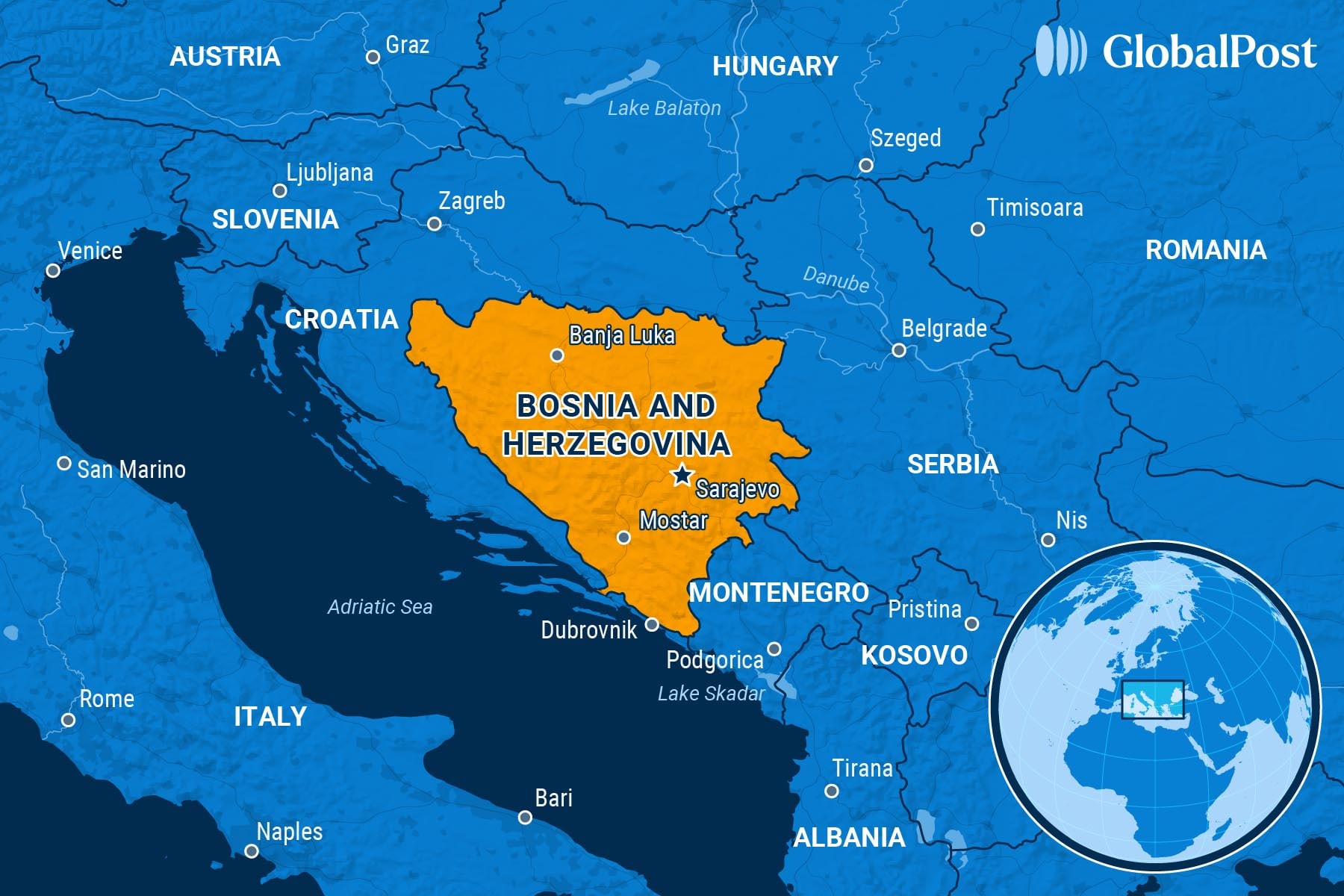As Tensions Threaten to Split the Country, Bosnians Hold Their Breath

Thousands gathered in Srebrenica last month to mark the 30th anniversary of the genocide committed by Bosnian Serbs against their Muslim neighbors in the former Yugoslav republic.
In the Guardian, photographers chronicled the somber monuments and traumatic legacy among families of the almost 10,000 people killed in the city as Yugoslavia broke apart and Bosnian Serbs pursued a policy of ethnic cleansing.
“I survived the last war,” Fahrudin, who was 18 when he was forced to abandon his home on a remote homestead because of the war but recently returned with his family, told the newspaper. “I survived a concentration camp, and I survived genocide.”
Bosnia and Herzegovina today is a patchwork of Serbian, Croatian, and Bosnian communities that have achieved some peace.
Radovan Karadžić and Ratko Mladić, who led the Bosnian Serbs in the bloody campaign in the 1990s, were sentenced to life in prison for their war crimes, including crimes against humanity like the Srebrenica genocide, reported Hurriyet Daily News, an English-language, Turkey-based outlet.
Karadžić is now serving time in a British prison. Mladić is imprisoned in a detention center in The Hague, the home of the Dutch government and the International Court of Justice, where, as the Irish Times noted, he has been exercising his right to appeal his conviction.
Many Bosnian Serbs are still at odds with their Bosnian compatriots, however.
Bosnia and Herzegovina emerged from the horrors of the Yugoslav wars in the 1990s with a political form that was prescribed by the 1995 Dayton peace agreement, which was both a peace deal and a blueprint for the state.
To accommodate, rather than solve, the tensions between the three main ethnic groups – Bosniak Muslims, Serbs, and Croats – the state was divided into two entities: the Serb-majority Republika Srpska and the Bosniak-Croat Federation of Bosnia and Herzegovina.
Both parts of the country hold considerable autonomous powers, but are bridged by weak federal political institutions. Like many power-sharing deals, Dayton ended the fighting but failed to build an integrated state, and the Republika Srpska is often at odds with its counterpart.
In August, Milorad Dodik, president of Republika Srpska, was sentenced to one year in jail, stripped of his office by a Bosnian court in the capital of Sarajevo, and banned from politics for six years for his separatist actions – he wants his region to join Serbia. An appeals court reduced the sentence to a fine but upheld his ouster from office.
Even so, Dodik, who denies the genocide and says the number of victims is overstated, has been taking measures to remain in office. He has vowed to challenge the court with a referendum in his region that might lead to an independent Republika Srpska, a move backed by Serbia. Now, new elections to replace him must be held by November.
Meanwhile, he has announced legislative amendments making participation in the organization of elections a criminal act and forbidding schools and cultural centers from serving as polling stations. Also, the ruling SNSD party will boycott the vote, he said, and then the entity will hold a series of referenda – on the authority of the state-level court, the international community’s peace overseer, and the “fateful” question of independence for Republika Srpska.
That has Bosnians holding their breath, Balkan Insight explained.
“After more than a quarter of a century calling the political shots in the predominantly Serb-populated entity in Bosnia and Herzegovina, Dodik isn’t going quietly,” it wrote. “Instead, the man once welcomed by the West as a liberal light among Bosnian Serb nationalists has vowed to do everything in his power to thwart the holding of elections to replace him.”
Analysts who spoke to European Western Balkans, a think tank publication, were skeptical of the legality of an independence referendum. But others at the International Crisis Group worried about a potential “national collapse” in the face of multiple separatist movements.
“Bosnia and Herzegovina (or Bosnia) is facing a critical test of its ability to survive intact as a state,” it wrote. “While tensions between the (Republika Srpska) and Sarajevo are longstanding, national collapse may be closer than ever before.”
Already, it’s impacting the business of governance.
Political disputes within Bosnia’s complicated, ethnic-based, power-sharing agreement have prevented leaders from adopting a government budget for the past eight months, for example, the Sarajevo Times wrote.
Now, the country will have to make a decision about its future, analysts say.
“Bosnia is at a crossroads,” wrote the Conversation. “Internally divided over whether populations see their future in their past, retaining a semi-autocratic, ethno-nationalist government, or whether they see their future as a democratic, accountable, and multiethnic state. Either way may spell turbulent times ahead.”

Subscribe today and GlobalPost will be in your inbox the next weekday morning
Join us today and pay only $46 for an annual subscription, or less than $4 a month for our unique insights into crucial developments on the world stage. It’s by far the best investment you can make to expand your knowledge of the world.
And you get a free two-week trial with no obligation to continue.
